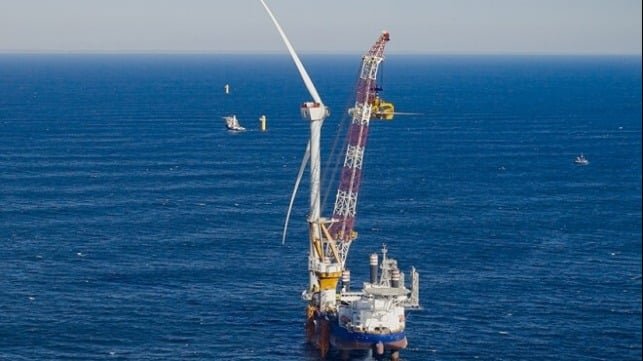Trump Administration Lifts Stop-Work Order on Empire Wind Offshore Energy Project
In a surprising turn of events, the Trump administration has lifted the stop-work order on New York’s Empire Wind offshore energy project. This decision comes after Norway’s Equinor threatened to walk away from the project due to the halt in construction activities. The Department of the Interior’s Bureau of Ocean Energy Management (BOEM) informed Equinor that the order was lifted, allowing construction to resume.
The stop-work order was initially issued by Secretary of the Interior Doug Burgum in April, citing concerns about the rushed permitting process. However, a concerted effort from various political fronts pushed for the project to proceed, with Governor Kathy Hochul condemning the order and working with President Trump to save the project.
Following a meeting between Equinor, White House officials, and Norwegian Finance Minister Jens Stoltenberg, the stop-work order was lifted. Equinor’s President and CEO, Anders Opedal, expressed gratitude towards the coalition of supporters, including Governor Hochul, Mayor Adams, and congressional leaders.
The restoration of Empire Wind 1 secures jobs for over 1,500 construction workers and drives economic development in New York. Doreen Harris, President and CEO of NYSERDA, emphasized the project’s significance for the state’s energy infrastructure.
Equinor, facing significant financial losses during the halt, plans to reassess the project economics in the second quarter. The project aims to complete offshore installation by 2025 and achieve commercial operation by 2027, engaging with suppliers to minimize the impact of the stop-work order.
Empire Wind, located south of Long Island, will feature up to 130 wind turbines with a capacity of 2.1 GW. The industry is relieved by the lifting of the stop-work order, as it signals a positive outlook for offshore energy projects.
While the Trump administration’s decision to lift the order is a welcome development, ongoing reviews in the industry continue, with efforts to halt projects in New Jersey also being observed. The future of offshore energy projects remains a topic of interest and scrutiny as the sector navigates regulatory challenges.

